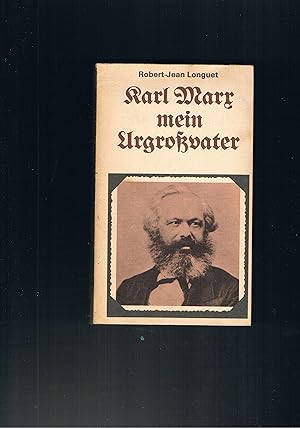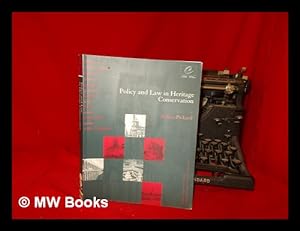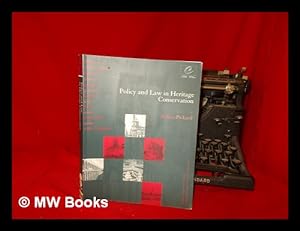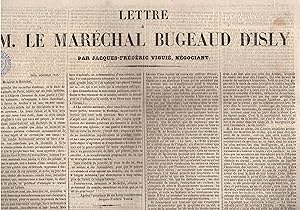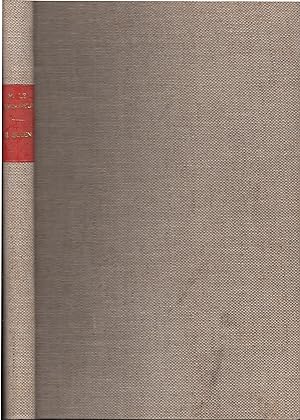Robert Jean Longuet, First Edition (9 results)
Product Type
- All Product Types
- Books (9)
- Magazines & Periodicals
- Comics
- Sheet Music
- Art, Prints & Posters
- Photographs
- Maps
-
Manuscripts &
Paper Collectibles
Condition
- All Conditions
- New
- Used
Binding
Collectible Attributes
- First Edition
- Signed (2)
- Dust Jacket
- Seller-Supplied Images (5)
- Not Printed On Demand
Free Shipping
Seller Location
Seller Rating
-
Karl Marx mein Urgroßvater
Published by Dietz, 1979
Seller: manufactura, Leverkusen, NRW, Germany
First Edition
Softcover. Condition: gut. EA. seltene Erstausgabe mit Marx Deckelbild und Bildteil In deutscher Sprache. 206 pages.
-
Zur Sozialisierungsfrage : die Arbeitsgemeinschaft der industriellen und gewerblichen Arbeitgeber und Arbeitnehmer Deutschlands.
Published by ADGB, 1919
Seller: Librairie Diona, Paris, France
First Edition
Couverture souple. Condition: Bon. Edition originale. In-8, broché, couverture imprimée d'origine, Berlin, ADGB, 1919, 68 pp. + 1 planche dépliante. Le premier intervenant du congrès, Paul Umbreit, fait référence à Thomas Moore, Gracchus Babeuf, Robert Owen ou encore Karl Marx, 6 mois après le meurtre de Rosa Luxembourg. Parmi les autres intervenants, sur les questions d'organisation et de production en rapport avec le travail, figurent Hilferding, George Schmidt et Adolf Cohen-Berlin.
-
Couverture souple. Condition: Bon. Edition originale. In-8, broché, affichette imprimée recto-verso, Paris, N.P.P., 1970. Cette publication acte la création du comité d'initiative du Secours rouge, refondé sous l'impulsion notamment de Jean-Paul Sartre et Claude Angeli : « Nous appelons à constituer un nouveau Secours rouge, lien de la solidarité populaire contre l'alliance du patronat, de l'État, de sa police et contre tous leurs complices. » Les signataires sont, dans l'ordre : Claude Angeli, Eugénie Camphin, R.P. Cardonnel, Georges Casalis, Jean Chaintron, Robert Davezies, Yvonne Halbwachs-Basch, Bernard Herszberg, Henri Guilloux, Francis Kahn, Bernard Lambert, Henri Leclerc, Georges Montaron, Roger Pannequin, Jean-Paul Sartre, Charles Tillon, Vercors.
-
De l'introduction du marxisme en France.
Published by Paris Marcel Rivière, "Etudes sur le devenir social" 1947, 1947
First Edition Signed
Condition: 3. in-12, broché, 216 pp. Edition originale avec un envoi de l'auteur à Paul Vienney et une lettre autographe signée à Robert-Jean Longuet, arrière petit-fils de Karl Marx (une page in-12, un peu froissée, datée du 25 août 1947). En bonne condition.
-
Policy and law in heritage conservation / edited by Robert Pickard
Published by London ; New York : Spon Press, 2001
ISBN 10: 041923280XISBN 13: 9780419232803
Seller: MW Books, New York, NY, U.S.A.
Book First Edition
1st edition. Library copy. Near fine copy in the original stiff-card wrappers; edges very slightly dust-dulled and toned. Remains particularly and surprisingly well-preserved; tight, bright, clean and especially sharp-cornered. Physical description: 348 pages: illustrations; 25 cm. Notes: Includes bibliographical references and index. Contents: 1. Introduction / Robert Pickard -- 2. Belgium / Myriam Goblet / [et al.] -- 3. Czech Republic / Josef Stulc -- 4. Denmark / Ulla Lunn and Carsten Lund -- 5. France / Isabelle Longuet and Jean-Marie Vincent -- 6. Georgia / Manana Simonishvili -- 7. Germany / Silvia Bruggemann and Christoph Schwarzkopf -- 8. Ireland / Rachel MacRory and Sean Kirwan -- 9. Italy / Giorgio Gianighian -- 10. Latvia / Juris Dambis -- 11. Malta / Anthony Pace -- 12. The Netherlands / Saskia Richel-Bottinga -- 13. Spain / Marina San Martin Calvo -- 14. United Kingdom / John Pendlebury -- 15. Review / Robert Pickard. Subjects: Historic preservation Law and legislation Europe. Cultural property Protection Law and legislation Europe. Historic preservation Europe. Cultural property Protection Europe. Cultural property Protection. Cultural property Protection Law and legislation. Historic preservation. Historic preservation Law and legislation. Historic preservation Law and legislation Europe. Genre: Bibliography. Illustrated. 1 Kg.
-
Policy and law in heritage conservation / edited by Robert Pickard
Published by London ; New York : Spon Press, 2001
ISBN 10: 041923280XISBN 13: 9780419232803
Seller: MW Books Ltd., Galway, Ireland
Book First Edition
1st edition. Library copy. Near fine copy in the original stiff-card wrappers; edges very slightly dust-dulled and toned. Remains particularly and surprisingly well-preserved; tight, bright, clean and especially sharp-cornered. Physical description: 348 pages: illustrations; 25 cm. Notes: Includes bibliographical references and index. Contents: 1. Introduction / Robert Pickard -- 2. Belgium / Myriam Goblet / [et al.] -- 3. Czech Republic / Josef Stulc -- 4. Denmark / Ulla Lunn and Carsten Lund -- 5. France / Isabelle Longuet and Jean-Marie Vincent -- 6. Georgia / Manana Simonishvili -- 7. Germany / Silvia Bruggemann and Christoph Schwarzkopf -- 8. Ireland / Rachel MacRory and Sean Kirwan -- 9. Italy / Giorgio Gianighian -- 10. Latvia / Juris Dambis -- 11. Malta / Anthony Pace -- 12. The Netherlands / Saskia Richel-Bottinga -- 13. Spain / Marina San Martin Calvo -- 14. United Kingdom / John Pendlebury -- 15. Review / Robert Pickard. Subjects: Historic preservation Law and legislation Europe. Cultural property Protection Law and legislation Europe. Historic preservation Europe. Cultural property Protection Europe. Cultural property Protection. Cultural property Protection Law and legislation. Historic preservation. Historic preservation Law and legislation. Historic preservation Law and legislation Europe. Genre: Bibliography. Illustrated. 1 Kg.
-
Lettre à M. le maréchal Bugeaud d'Isly, par Jacques-Frédéric Viguié, négociant. (Septembre.). Les socialistes et le travail en commun. (Signé : Mal B. d' Isly.).
Published by (Paris) : Impr. de N. Chaix, (date de publication non identifiée, 1848
Seller: PRISCA, Paris, France
First Edition
Couverture souple. Condition: Très bon. Edition originale. In-folio, 2 pages.
-
Le spleen : contribution a l'etude des perversions de l'instinct de conservation (exemplaire de Léon FOUKS) COPY SIGNED
Published by G. Steinheil, Paris, 1913
Seller: Librairie Lalibela, Ckelles, PARIS, France
First Edition Signed
Couverture rigide. Condition: Très bon. Edition originale. In-8° relié, 241 pp - - - Henri Le Savoureux, né à Paris le 5 janvier 1881 et mort à Châtenay-Malabry le 20 juin 1961, est un médecin psychiatre, écrivain et salonnier français. Il est le fils de Joël Le Savoureux (1850-1896) et de Clara Caroline Jeanne Bellaire (1852) De retour en France, son père, consul de France à Tananarive (Madagascar) auprès de la reine Ranavalona III, le place à l'école alsacienne où il se liera d'amitié avec Henry de Monfreid (1879-1974) Son père Joël Le Savoureux en poste à Singapour y meurt à peine arrivé du paludisme en janvier 1896. Fin lettré, il fréquente le salon de Natalie Clifford Barney, tout comme Mina Loy, de qui il serait devenu l'amant en octobre 1906 et qui lui aurait fait un enfant selon le romancier Mathieu Terence. Le 5 juillet 1910, il épouse à Paris la femme de lettres Françoise Marie Aimée Bedeau (1884-1920). Puis le 20 août 1923 à Boulogne-Billancourt il épouse en secondes noces Sophie Lydie Plekhanov (1881-1978), fille de Gueorgui Plekhanov (1856-1918), fondateur de la social-démocratie russe et de Rosalie Bograde. Sa soeur Eugénie épouse Georges Batault (1887-1963) et sont les parents du diplomate Claude Batault (1918-2008) En 1914, il achète avec le docteur César Hugonin la propriété de François-René de Chateaubriand de la Vallée-aux-Loups, à Châtenay-Malabry pour y créer un établissement de santé psychiatrique. Avec sa seconde épouse ils vont y animer un salon littéraire fréquenté par des peintres, écrivains et artistes comme l'abbé Arthur Mugnier, prêtre catholique mondain confesseur du Tout-Paris, ainsi qu'Anna de Noailles et sa cousine la princesse et femme de lettres Marthe Bibesco, Berenice Abbott, Henri de Régnier, Julien Benda, Édouard Herriot, Antoine de Saint-Exupéry, Paul Valéry, Jean Fautrier, Vladimir Jankélévitch, Paul Léautaud, Paul Morand, Jean Paulhan, René Pleven, Francis Ponge, Jacques Audibert, Claude Sernet, Marc Bernard, Gaëtan Gatian de Clérambault, Paul Valéry, Jules Supervielle et Marc Chagall. À l'élection de Jean Longuet à la mairie de Châtenay-Malabry (1925-1938), il est membre de la SFIO, et devient son premier adjoint. Il est chargé de mettre en place le patronage Voltaire pour concurrencer celui de l'église, et de développer l'action dans le sport et dans le domaine culturel. Il est secondé dans cette tâche par de jeunes militants qui seront les futurs maires de la commune : Gaston Richet, maire de 1938 à 1947 et André Mignon, de 1965 à 1976, avec la participation de Jean Paulhan, conseiller municipal indépendant de 1935 à 1941. Pendant la Seconde Guerre mondiale, il cache dans sa maison de santé le peintre Jean Fautrier qui y peint sa série des Otages dans la tour Velléda, Jean Paulhan, le docteur Henri Baruk, médecin chef de Charenton, le docteur Robert Debré de l'automne 1943 à l'été 1944. Robert Debré y rédige ses articles pour un journal médical clandestin et y crée le Comité médical de la Résistance dont il est le vice-président sous le pseudonyme de Flaubert. Il y rédige également un rapport sur la réorganisation de la médecine, traçant ainsi les grandes lignes de la réforme de 1958. Simone Martin Chauftier y rencontre Boris Vildé un peu avant son arrestation. Signé par l'auteur.
-
Tabacaria: revista de poesia e artes plasticas.
Published by Lisbon, Casa Fernando Pessoa (all issues) / Contexto Editora (numbers Zero-10 only), 1996-2004., 2004
Seller: Richard C. Ramer Old and Rare Books, New York, NY, U.S.A.
First Edition
15 issues, numbered Zero to 14. Folio (28.6 x 21.4 cm.-numbers 0-10); (30 x 24.1 cm.-numbers 11-14), original illustrated wrappers. Considerable illustration, mostly in color. As new. *** FIRST and ONLY EDITION-A COMPLETE RUN. The first eight issues (as well as issue Zero) were directed by Nuno Júdice, the editorial board consisted of Fernando Pinto de Amaral, Manuel António Pina, Alexandre Pomar and Joana Morais Varela. Beginning with number 9, the review was directed by Maria Calado, Vereadora da Cultura of the Câmara Municipal de Lisboa. The editorial board consisted of Anick Bilreiro and Rita Rodrigues. With number 11, the editorial board was expanded to consist of Ana Maria Santos, Anick Bilreiro, Maria José Gonçalves, Rita Rodrigues, and Susana Sena.Issue Zero contains a text by Fernando J.B. Martinho about Selette Tavares, several texts about Fernando Pessoa and António Dacosta, others about poetry, as well as poems by Jean-Claude Pinson, Dominique Fourcade, Alexei Bueno, Thomaz Albornoz, Luís Filipe Castro Mendes and Pedro Tamen.Issue number 1, besides essays on literature and art, contains poems by Jean-Claude Pinson, Dominique Fourcade, Alexei Bueno, Thomas Albornoz, Luís Filipe Mendes and Pedro Tamen.Issue number 2 contains texts by João Soares, Eduardo Lourenço, João Cutileiro, Sophia de Mello Breyner Andresen and Graça Morais, Alexandre Pomar, Jorge Colado, Nuno Júdice, Eduardo Prado Coelho, Manuel Gusmão and others. There are poems by António Ramos Rosa, Ana Luísa Amaral, Maria do Rosário Pedreira, Mara Teresa Horta, Fatos Arapi, Jordi Virallorga, Philippe Jaccottet and Israël Eliraz.Issue number 3 contains an article by Jorge Monteiro, "A presença de Pessoa no mundo de língua inglesa", other essays on Pessoa by Martin G. Murray and Allen Ginsberg, a "Saudação a Walt Whitman" by Álvaro de Campos, as well as several articles about poetry, and more. There are poems by Fernando Lemos, João Camilo, Jorge de Amorim, Manuel Alegre, Al Berto, Miguel Serras Pereira, Fernando Guimarães, José Ángel Valente and Yolanda Pantin.Issue number 4 is accompanied by a small 8º volume titled Portuguese Poetry After Pessoa. The review itself includes contributions by José Régio, Vitorino Nemésio, Miguel Torga, Jorge de Sena, Carlos de Oliveira, Alexandre O'Neill, David Mouão-Ferreira, Ruy Belo and Luiza Neto Jorge.Issue number 5 opens with an essay by Antonio Tabucchi, "Tu, Lisboa. Você, Lisboa. Senhora Dona Lisboa. There is an essay on the visual arts by Júlio Pomar, essays about Fernando Pessoa, and more. Included are poems by Liliana Ursu, William Cliff, Bernard Noël, Hans Raimund, Martin Steiner, Pentti Holappa, Juan Gelman, Abdullah al-Udhan, Casimiro de Brito, José Manuel Mendes, Luís Fernando Quintais, Ana Luísa Amaral, Ana Hatherly and Wanda Ramos.Issue number 6 contains an essay about Pessoa by Firmino Ribeiro Mendes, "Walt Whitman e Álvaro de Campos", six articles about poetry, including Paulo da Costa Domingos, "Luz sobre Al Berto", and more. There are poems by Armando Silva Carvalho, Antonio Gamoneda, Boris Hristov, Claudia Storz, Eva Chiristina Zeller, Mário Cláudo and Teresa Rita Lopes. Issue number 7 contains an essay by Vasco Graça Moura, "A narração de mais alguma coisa: Gérard Castello-Lopes", a brief essay about Pessoa by José Saramago, a longer one by Robert Bréchon, "Pessoa e Lisboa", three articles about poetry, including one by Nuno Júdice, and more. There are poems by Fiama Hasse Pais Brandão, Amadeu Baptista, Vera Lúcia de Oliveira, Maria Luisa Spaziani, Peter Härtling, Michel Deguy, Enis Batur and Larry Sawyer.Issue number 8 contains articles on the plastic arts about Fernando Lemos, Maria Beatriz, Lui Darocha and Mónica Machado, as well as poems by Fernando Echevarria, Fernando Lemos, Helder Macedo, Jorge de Amorim, Luís Amorim de Sousa, Luiz-Manuel, and Rui Diniz. Some of the criticism of the above poems is by Fernando Guimarães, Alberto de Lacerda, and Nuno Júdice.Issue number 9 contains an introductory article by Rui Mário Gonçalves, as well as brief essays on Simone Boisecq by Michel-Georges Bernard, André S. Labarthe, Anne Longuet Marx, Manuel Gusmão, Fernando Cabral Martins and Maria Teresa Dias Furtado. There are other brief essays on the theme "Se a palavra fosse visual" by Rui Chafes and Vanessa Rato (2). Essays "Sobre poesia" are by João Berrento and Valérie Lawitschka (2). The issue contains poems by Fernando Guimarães, Fernando Guerreiro, Ana Hatherly, Gottfried Benn, Rainer Maria Rilke, Evelyn Schlag, and Barbara Köhler. Issue number 10 was devoted mainly to photography and to poetry. There are articles by Sérgio Mah, Nuno Martinho, Nuno Faria, Alexandre Castro Caldas, João Mário Grilo, Gilberto Reis, José Tolentino Mendonça and Marina Tavares Dias. Poems by Armando Silva Carvalho, Jean-Clarence Lambert, John F. Deane, Olga Savary, Paolo Ruffilli, Pia Tafdrup, Ruth Fainlight, Tahar Bekri, and Yao Jingming occupy pp. 71-84. Pages 85-108 contain a catalogue of periodical publications in the library of the Casa Fernando Pessoa. Issue number 11 was devoted mainly to Fernando Pessoa. The subtitle Revista de poesia e artes plasticas was dropped. The review was no longer being co-published by Contexto Editora, now defunct, perhaps in part due to the controversy generated by issue number 8. Contributors to number 11 included Eduardo Lourenço, Anabela Mota Ribeiro, Susana Sena, Clara Ferreira Alves, Nelson Saúte, Pedro Rosa Mendes, José Eduardo Agualusa, Maria João Avillez, Eduardo Prado Coelho, F.M. Fonseca Ferreira and Filipa Melo. There are poems by Gastão Cruz, Ángel Campos Pámpano, and Paulo José Miranda.Issue number 12 was subtitled As cidades das pessoas. Contributors included Manuel Alegre, Pedro Mexia, Manuel Graça Dias, Clara Ferreira Alves, Mia Couto, José Eduardo Agualusa, and Francisco José Vargas. There are poems by Bernardo Pinto de Almeida, José Tolentino Mendonça, Luís Filipe Castro Mendes, Maria do Rosário Pedreira, Nuno Júdice and Vasco Graça Mo.


